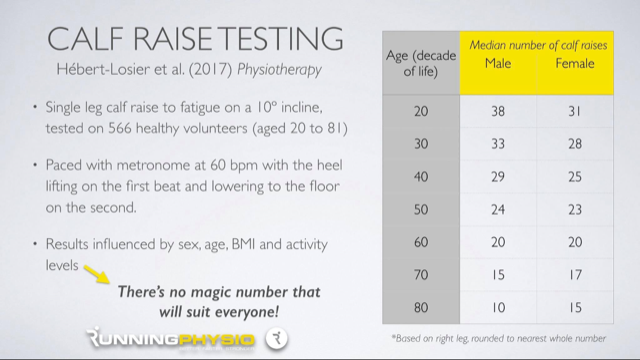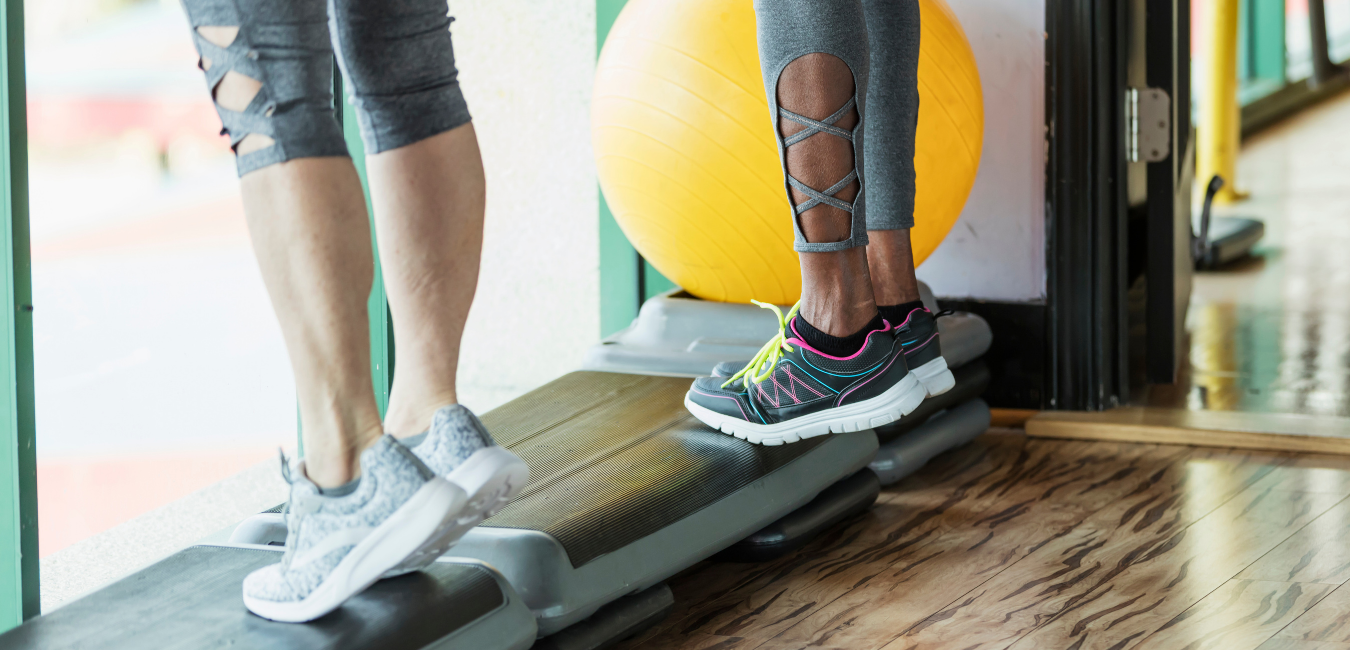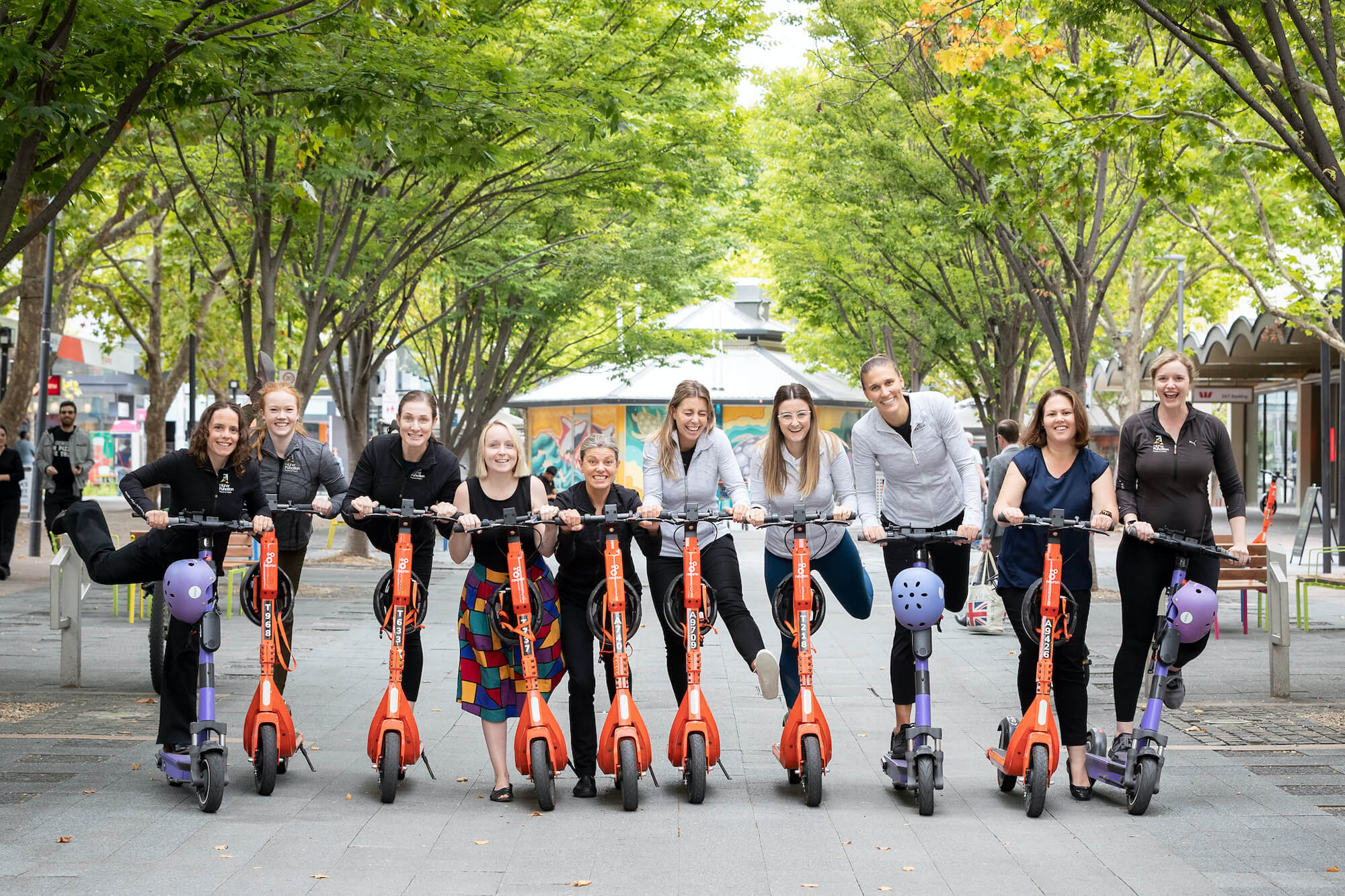By Andrea Rich – Physiotherapist
Our calf muscles are important in everyday activities and play a big role in simply walking! They propel us forwards each step we take. However, calf strengthening is commonly forgotten in exercise programs and a weak calf can be a cause for many injuries of the lower leg.

What are the calf muscles?
The calf is often referred to as the 2 muscles in the lower leg that join together to make the Achilles tendon. The gastrocnemius (or gastroc for short) has two heads which attach above the knee and join to the Achilles and into the heel bone (calcaneus). The gastroc works more with the knee straight and assists with big movements such as running. The soleus sits deeper to the gastroc and attaches from below the knee and joins onto the Achilles. The soleus works more with the knee bent and is an endurance muscle helping with postural control.
Common calf injuries and injuries related to weak calves:
- Gastroc or soleus muscle strain (more commonly gastroc)
- Achilles tendinopathy
- Achilles tendon rupture
- Plantarfasciopathy
- Stress fractures
- Ankle sprain
- Medial tibial stress syndrome (shin splints)
Strengthening your calf muscles can be a preventable measure to avoid such injuries, but it is also important to incorporate calf strengthening into rehabilitation post injury.
Some people have other muscles that are very strong, such as the Quadriceps (which straighten the knee), which can compensate for a weak calf. Your Physio can determine whether you have deficiencies in strength, length, and joint stiffness (e.g. a stiff ankle from a previous ankle sprain) that may have caused the problem. We look at the way the entire body may have adapted and show you how to correct this!
What can I do to strengthen my calves?
Depending on your baseline calf strength, there are a variety of exercises to help strengthen your calf muscles. We as physios can help determine the best place for you to start and help you progress through to harder variations and provide you with guidance on how many and how often.
Commonly exercises which involve a calf raise are prescribed to strengthen the calf. This can be done on 2 feet or standing on 1 foot. Variations of this include a calf raise off the edge of a step, raises with a bent knee, raises in a squat or lunge position and more explosive activities such as hopping and change in direction activities.
The perfect class at Higher Function for calf strengthening is our Barre class! It is an upbeat, flowing workout that draws inspiration from the poise and positions of ballet, combined with the stability, strength and control of Pilates. This class is taught by our Physio Dominique, who is also a classical ballet dancer and teacher! Reformer Classes or an individually designed home / gym program using our Pilates studio equipment can also help with calf strengthening.
Test your calf strength
The table below shows the average number of single leg calf raises males and females can achieve in relation to their age (Hebert-Losier, K., et al. (2017) Physiotherapy).
Please do not attempt if you have any injury in relation to this area and see your physiotherapist if any pain.
- Start facing or side on to a wall with fingertips against wall for balance, with one knee bent up and standing leg straight
- Raise up as high as you can onto toes of standing leg
- Lower foot down
- Speed = 1 second up, 1 second down
- Repeat until failure
- Swap legs
Tips:
- Keep standing leg straight (knee not hyperextended, soft bend)
- Keep hips at same height
- Do not pull through hands
- Stop if any pain

References:
Hebert-Losier, K., et al. (2017). “Updated reliability and normative values for the standing heel-rise test in healthy adults.” Physiotherapy 103(4): 446-452.


